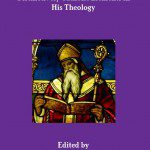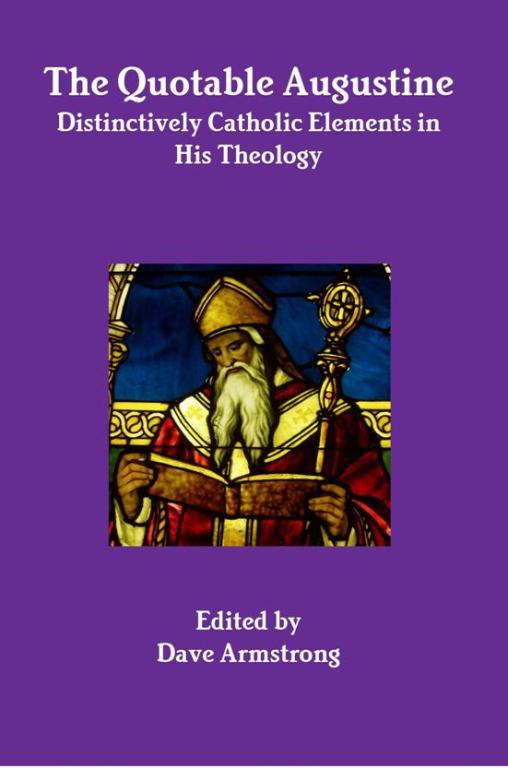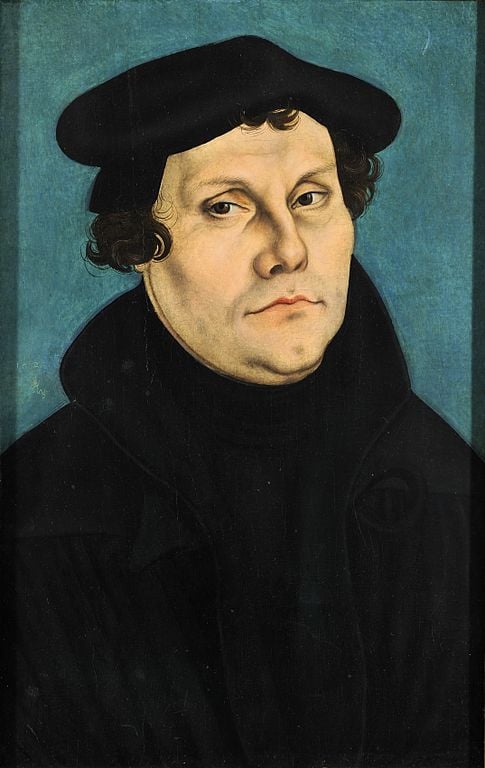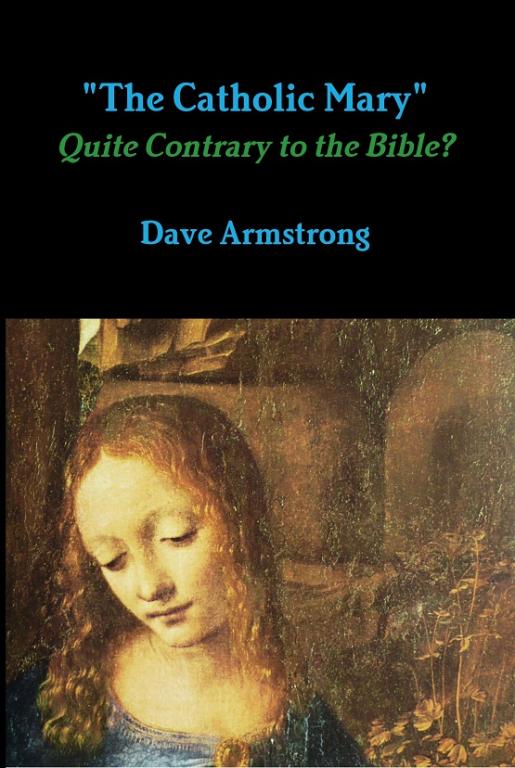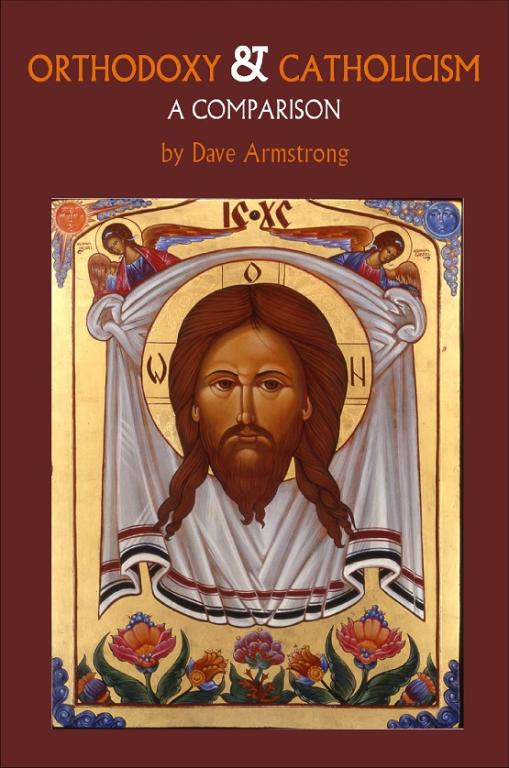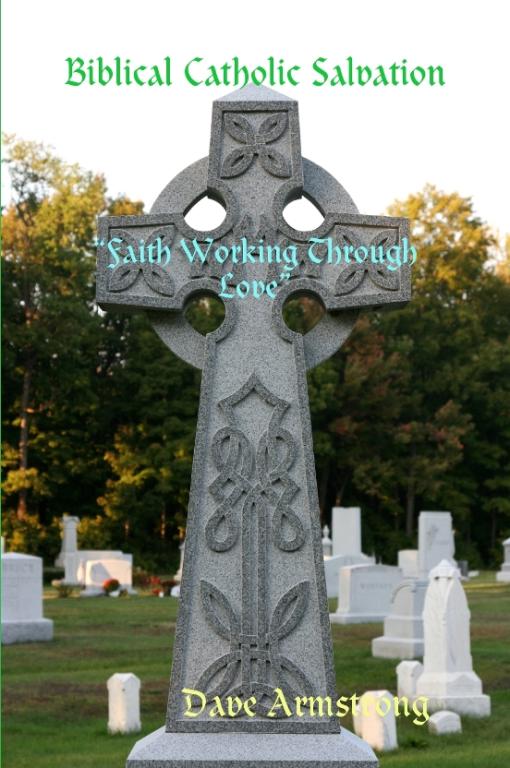(vs. Nathan Rinne)
Nathan’s words will be in blue.
* * *
Dave, I appreciate your approach and your clarity with which you write, but at the same time, it seems to me that right from the get-go you have not been nuanced enough in your presentation. You have, I believe unintentionally, misrepresented Chemnitz’s true position. The problem is not elevating “Tradition and Church Authority higher in the scheme of things than they ought to”. The problem is the improper use of Church Authority and the concept of Tradition, in violation of the Rule of Faith.
*
Okay; I’ll wait to see how you unpack that. I need particulars to grapple with before I can reply intelligently.
(at one point, Chemnitz says that some “excellent men in the church” “attributed too much beside the Scripture to the unwritten traditions”, p. 278, so maybe this is where you got the idea for framing things the way you did). Again, there is no doubt that the church with its proper Rule of Faith (and Apostolic Ministry to, by the way – this is clearly something that Jesus established and we have no reason to assume that it will not exist until his return… Jesus approves Apostles who approve pastors who approve pastors who approve pastors…) goes hand in hand with the Scriptures.
*
The Catholic-Lutheran (or Catholic-Protestant) beef is not whether the Church (however defined) has authority at all, but whether it has infallible authority. Lutherans and Chemnitz reject the latter; we affirm it. I’m either right or wrong about it. If I am right, then the discussion must proceed on that basis (disputing the parameters of infallibility). If I’m wrong, then please show me where Chemnitz affirms an institutional, historical, infallible Church. When he talked about indefectibility, he simply defined that as the invisible, mystical Church, whereby anyone can assert just about anything, because it is not historical, objective analysis. He certainly rejected the authority of the existing (Roman) Catholic Church.
Having done that, he has to argue why that Church somehow ceased to be the Church (since there is only one such), and by the same token, why anyone should believe that a new movement begun in the 16th century somehow magically becomes “the Church” to the exclusion of the historical one, or why the definition of “Church” all of a sudden becomes purely mystical and invisible, when it had always included a visible, institutional, historical aspect. He can’t do any of that. This is always the unsolvable problem that belief-systems run up against in trying to argue from Church history. There are a host of interconnected problems that I don’t see can be resolved at all.
They are a whole, part and parcel of one another. The real problem, as Chemnitz would see it, is going beyond that proper Rule of Faith, in the sense that this means insisting that certain traditions without sufficient Scriptural warrant (this does exist for infant baptism – it is unacceptable to deny the wealth of evidence implicit in Scripture, as well as the consensus of antiquity [save Tertullian] here) need to be adhered to with the same level of devotion as those revealed in the Scriptures (with the implication that, for those who know better, salvation is at stake if the Magisterium is refused). Furthermore, things become especially problematic when these said traditions clearly mitigate the Gospel comfort that God means to provide. In other words, this would, in effect, actually be mitigating the Rule of Faith itself, that central truth in the creed: that God, in His grace, promised to, and was, reconciling man to Himself through His Son Jesus Christ, rescuing us from sin, death, and the devil by the confidence-creating proclamation of His forgiveness, life and salvation won by His life, death, and resurrection (the Gospel in its narrow sense, particularly comforting to Christians who are struggling against the sin that continues to best them [see Romans 7])
*
Again, the charge has to be argued with regard to particular individual instances. I can’t dispute these summary statements.We believe in Jesus Christ and His all-sufficient saving work on the cross (ours to receive by Grace Alone), just as you do. We only deny an extreme Faith Alone position (which does not deny Grace Alone, since they are distinct).
As to Tertullian seeking to ground all doctrine in Scripture, or harmonious with Scripture (meaning that there may not always be explicit proofs, as Chemnitz himself later concedes with regard to, e.g., infant baptism) we have no disagreement.
*
I don’t think Chemnitz is conceding anything here. That there may not always be explicit proofs is a key part of Chemnitz’s point and method. However saying that there need not always be explicit proofs does not mean that there can be no proof – or proof that is less than strong and insurmountable. What is really essential about this quotation is that Tertullian really believed that all essential and binding doctrine should be grounded in Scripture.
*
So do Catholics; so do I. The question here is what is meant by “grounded.” I already went through all this in the paper from which you drew this quotation of mine, and you have not refuted it in the slightest. Tertullian’s view was documented and commented upon at great length (green font). You’re still making bald summary statements rather than actually interacting with my arguments. Tertullian believed in the Catholic rule of faith: all doctrines must be in harmony with Scripture; not necessarily expressly stated in Scripture. Two sentences after my words above, I also stated:
Yet in this same work, Tertullian clearly opts for the binding authority of apostolic succession and the Church: exactly what Chemnitz and Lutherans deny: [followed by lengthy Tertullian citations]
I followed the lengthy citation with this comment:
Chemnitz doesn’t write like this; most Protestants do not. This is (again) Catholicism. It is perfectly permissible to say that truth is grounded in apostolic succession and the Church grounded therein. It is also true to say that truth is grounded in Holy Scripture. The two do not contradict. But they need not always be stated together. Chemnitz will only state them together while stressing over and over again that Scripture is over Tradition and the Church.
But Tertullian, Irenaeus, and other Fathers saw no need to dichotomize and categorize like that. They simply didn’t think in those terms (as historians of doctrine have stressed). It requires revisionism and historical anachronism to make out that they thought like 16th century Lutherans on these issues. Chemnitz has the same exact problem, then, with Tertullian here, that he had with Irenaeus (since he made the same exact argument for both, and both are seen to not conform to his characterization).
I then cited historian J. N. D. Kelly at length, about Tertullian. That can be read in the other paper. Here are the most relevant two of the five paragraphs:
But Tertullian did not confine the apostolic tradition to the New Testament; even if Scripture were to be set on one side, it would still be found in the doctrine publicly proclaimed by the churches. Like Irenaeus, he found [E.g., de praescr. 21; 32; c. Marc. 4, 5] the surest test of the authenticity of this doctrine in the fact that the churches had been founded by, and were continuously linked with, the apostles; and as a further guarantee he added [De praescr. 28] their otherwise inexplicable unanimity . . .
This unwritten tradition he considered to be virtually identical with the ‘rule of faith’ (regula fidei), which he preferred to Scripture as a standard when disputing with Gnostics . . . where controversy with heretics breaks out, the right interpretation can be found only where the true Christian faith and discipline have been maintained, i.e., in the Church [De praescr. 19] . . .
I don’t see the purpose of my simply having to repeat arguments I already made, that you are not interacting with, and passing by as if they weren’t there. Your task is to overthrow my contentions, not merely state that they are wrong: which is mere bald assertion.
In the introduction to the Examination of the Council of Trent, translator Fred Kramer says that Chemnitz is the source of the “formal principle of the Reformation”: “that the Scriptures, and not tradition of a combination of the Scriptures and tradition, is the source and norm of doctrine in the Christian church” (p. 22).
*
Obviously, Tertullian does not take the same view; therefore, Chemnitz could not reasonably enlist him for his side, just as he also could not “claim” St. Irenaeus (dealt with in the same paper). They don’t help his case. They only appear to if they are cited hyper-selectively.
I think Kramer himself is not being nuanced enough! Remember, Chemnitz lists 8 kinds of tradition, only rejecting the eighth one. Please note that in most modern interpretations of the formal principle of the Reformation, types 3-7 are typically rejected as well. Chemnitz, contra J.A.O. Preuss even (evidently) did not simply use the fathers as “witnesses” to the Reformation doctrine, but they are sometimes essential in working out tradition #5: “dogmas that are not set forth in so many words in Scripture but are clearly apparent from a sampling of texts”. So the question here is this: how does Chemnitz go about using the Scriptures as the “sole source and norm”? This can be seen in how he teaches infant baptism in his Enchidrion. First, he says that it has been practiced in the church from the time of the Apostles: the writings of the fathers provide the proof for the practice and its defense. Notice that here the writings of the church fathers function as more than witnesses. They are pointing back to the apostolic interpretation of the applicable texts. After one has been exposed to this patristic testimony, when the texts are read again, their true meaning becomes clear (yes, even if the Baptist continues to deny it…and no, the same cannot be said for the hierarchical distinctions between bishops and presbyters, as Jerome pointed out). This also goes beyond issues like Baptism into things like the Trinity and Christ’s divine and human natures. Chemnitz elsewhere states that certain fathers explain certain concepts the most clearly of all, and that the fathers taught these concepts after clearly drawing them from Scripture (more on this below). (P. Strawn, Cyril of Alexandria as a Source for Martin Chemnitz, in Die Patristik in der Bibelexegese des 16. Jahrhunderts, Wolfenbu”ttleler Forschungen, Bd. 85, Hrsg. v. David C. Steinmetz, Wiesbaden 1999213)
*
Okay; I have no particular reply. Chemnitz may do any number of things. That is not my primary interest, but rather, whether the fathers and the Bible support the Catholic or the Lutheran position (where we disagree). Whether Chemnitz is in perfect accord with the Lutheran confessions or not is as irrelevant (for the Lutheran dogmatic standpoint) as whether Luther in in accord with them. It may be interesting as an historical matter, but resolves nothing by way of comparing Lutheranism and Catholicism.
Now, it is true that one can label Chemnitz’s view as “Sola Scriptura” in a sense. He believed, as the Chemnitz-infused Formula of Concord would later say, “We receive and embrace with our whole heart the Prophetic and Apostolic Scripture of the Old and New Testaments as the pure, clear fountain of Israel which is the only standard by which all teachers and doctrines are to be judged” (851, Triglot, Bente and Dau). Paul Strawn explains Chemnitz’s view in more detail: “the Word of God, first given verbally to Adam, underwent a continuous process of corruption and restoration until the time of Moses” [which explains God doing things in Tablets of Stone: the Word committed to writing preserved the true doctrine]… and “Christ and the Apostles repeated the process with the production of the New Testament writings…. Christ and the Spirit assisted Apostles who gave the Word verbally, and after a time the Apostles or their assistants committed the Word to writing to secure it from the dangers of verbal transmission.” In sum: “The verbal and the written Word continued to exist side by side, but the latter always corroborated the former” (P. Strawn, Cyril of Alexandria as a Source for Martin Chemnitz, in Die Patristik in der Bibelexegese des 16. Jahrhunderts, Wolfenbu”ttleler Forschungen, Bd. 85, Hrsg. v. David C. Steinmetz, Wiesbaden 1999213)
*
This is essentially asserting the material sufficiency of Scripture, which I and Catholics generally accept. Thus, this particular aspect of Lutheran teaching on authority, we have no gripe with.
Strawn concludes: “Chemnitz’s enumeration of the Scriptures as the first of eight types of traditiones clearly reflected, and generated, an optimistic assessment of the non-apostolic writings of the church. The basis for such a construction, the pre-biblical, co-biblical, and post-biblical verbal transmission of the Word of God [I note: tradition #4 – Scripture’s proper interpretation] assured a dynamic interaction between the verbally transmitted Word, and the Word committed to writing. The concepts of source and norm therefore do not violently tear the Scriptures away from the fabric of the theological writings of the Church, but in fact the opposite: they assure their continual interaction and help to retain the apostolic witness in its dominant position….” (217).
*
Great. But there is still the issue of the denial of the infallibility of anything besides Scripture, that I delved into in the last installment.
Again, I would add that this looking back to the Scriptures is part and parcel of the Rule of Faith, and one we see clearly outlined in Scripture with the Bereans in Acts 17 (note also Isaiah 8:20 especially). Strawn, again, is very helpful here: “obviously, the Bereans went searching the Scriptures because Paul’s sermons contained ideas or concepts they had not formerly heard, understood, or realized. Paul introduced nothing new, however, just pointed to something that before had not been properly noticed. This interpretation of the Bereans’ actions creates the possibility that the fathers could introduce ‘new’ concepts into the sixteenth century, i.e. those concepts that the reformers had not understood before reading the fathers, that were then affirmed by a rereading of Scripture.” (p. 215)
*
Interesting. We would only qualify this by saying that any such true concepts would have to be grounded in continuous Catholic teaching. St. Vincent of Lerins’ “dictum”: “believed always, everywhere, and by all” (which is a strong generalization, but we get the point). Development of doctrine comes into play here. Things were present in kernel form at first, for many doctrines, and developed through the centuries.
I agree with this assessment. However, I want to see this challenged as well: what is there that I have not “properly noticed” I wonder? (I can think of one that I am actually somewhat curious about, and open to hearing more about: the establishment of a head Apostolic Office by Divine rite, although in the sense of primacy of honor rather than by jurisdiction…)
*
I think that is in the Bible itself, with a great deal of indication. See many articles about biblical evidences for the papacy on my Papacy and Infallibility web page. And it’s more than just “honor”; it is jurisdiction by divine and scriptural proclamation.
Chemnitz:
And we confess that we are greatly confirmed by the testimonies of the ancient church . . . Nor do we approve of it if someone invents for himself a meaning which conflicts with all antiquity, and for which there are clearly no testimonies of the church. (pp. 208-209)… We confess also that we disagree with those who invent opinions which have no testimony from any period in the church . . . We also hold that no dogma [I say: note the word “dogma” – this is key] that is new in the churches and in conflict with all antiquity should be accepted. What could be more honorably said and thought concerning the consensus and the testimonies of antiquity? . . . we search out and quote the testimonies of the fathers . . . (p. 258)
He is wrong about Lutheranism being “greatly confirmed by the testimonies of the ancient church.” The exact opposite is the case (i.e., if we are comparing the relative strengths of Catholic and Lutheran doctrines where we disagree — which is always my primary interest as an apologist). He is right about things not conflicting with “all antiquity,” but I would say he is inconsistent in the application of that standard, as a Lutheran. As for “new dogma”: that has to be carefully defined. Development of doctrine is intricately involved in all that.
So, for example, the Catholic would say that the initial kernel and essence of the Immaculate Conception is the sinlessness of Mary: almost universally held by the fathers (a tiny minority thought she committed a few sins), and the notion of the Second Eve (Mary said “yes” to God whereas Eve had said “no”, thus opening the way to the Incarnation; Eve was sinless; by analogy, so was Mary).
This essential kernel (that is indeed indicated in Scripture: I make no less than four distinct biblical arguments for that (see my dialogue with Dr. Gene Edward Veith), then develops over centuries, with much reflection, to the Immaculate Conception, which is a consistent development of sinlessness: merely extending it back to her conception and to original as well as actual sin. So if you or Chemnitz claim there is “nothing” in Scripture whatever about this doctrine, I strongly disagree, and demonstrate otherwise. The Assumption follows logically: if Mary is without sin, even original sin, then it follows that she would not necessarily have to undergo the decay of death: she becomes like Adam and Eve before the fall. Thus it is directly deduced from a doctrine that has much implicit indication in Scripture, which is completely in accord with material sufficiency.
David, first, I agree with you that it is not right to take “grace alone” quotes and use them as if Catholics do not affirm grace alone in some sense (we must acknowledge our different definitions of grace here). Agreed. If, however, in any quote grace is put in opposition to works it would certainly be appropriate to use such quotes.
*
St. Paul does the latter in Scripture, but it is in a particular sense: the “works” of Jewish ritualism by which the Jews gained their unique identity (e.g., circumcision). This is the crux of the new perspective on Paul, by Protestant scholars like James D. G. Dunn, E. P. Sanders, and N. T. Wright. The Wikipedia article on the movement gives a description of the central motif:
Paul’s letters contain a substantial amount of criticism of “works of the law”. The radical difference in these two interpretations of what Paul meant by “works of the law” is the most consistent distinguishing feature between the two perspectives. The old perspective interprets this phrase as referring to human effort to do good works in order to meet God’s standards (Works Righteousness). In this view, Paul is arguing against the idea that humans can merit salvation from God by their good works (note the New Perspective agrees that we cannot merit salvation- the issue is what exactly Paul is addressing).
By contrast, new perspective scholars see Paul as talking about “badges of covenant membership” or criticizing Gentile believers who had begun to rely on the Torah to reckon Jewish kinship.
The Apostle Paul doesn’t oppose grace, faith, and works, and in fact, constantly puts them together, in harmony, as I have shown, with 50 of his passages and color-coding, to make it easy to spot each conceptual category. A few examples:
1 Corinthians 15:10 But by the grace of God I am what I am, and his grace toward me was not in vain. On the contrary, I worked harder than any of them, though it was not I, but the grace of God which is with me.
2 Corinthians 6:1 Working together with him, then, we entreat you not to accept the grace of God in vain.
Grace and works are for Paul, quite hand-in-hand, just as faith and works are. The new perspective on Paul “gets” this. I’m glad to see it. We Catholics have maintained something like this for 2000 years, and have refused to dichotomize grace, works, and faith. We only pit grace against works insofar as we deny (with you) Pelagianism: man cannot save himself. Trent is very clear on that. We don’t teach works-salvation (we vigorously deny it), despite what the Lutheran confessions wrongly (and frequently) assert about us.
Second, if the Fathers did not perceive a clear challenge to the idea that a person was saved by grace alone and not “one’s own works performed in righteousness” in the early church, we would not really expect to find explicit statements talking about imputed justification, since they would have been unnecessary.
*
That’s one theory. I think a more plausible views is that they didn’t discuss it because it wasn’t part of apostolic doctrine in the first place: being absent from Scripture.
Analogously, Cyril of Alexandria’s ideas about Christ’s divine and human nature were somewhat “new” (a new way of putting things) and only implicit in the writings of other early church fathers – not to mention few and far between. To my knowledge, in the early fathers there is no “explicit” Cyril-like talk about Christ’s divine and human nature in the centuries before him (much like the situation with Luther and his understanding of the peace and confidence-creating power of justification).
*
Yes, but that is the distinction between a development and a novelty. Scripture states all over the place in many different ways that Jesus is God and that he is also Man. The two natures develops what is clearly already there (describing how He can be both God and man, and the relationship). But Scripture doesn’t teach faith alone at all; thus the fathers do not, either. In fact, the only time the phrase appears in the Bible, it is expressly denied:
James 2:24 (RSV) You see that a man is justified by works and not by faith alone.
Paul states:
Romans 3:28 For we hold that a man is justified by faith apart from works of law. (cf. 3:20; 3:24: “justified by his grace as a gift”)
But saying “justified by faith” is different from saying “justified by faith alone“. The “works of the law” he refers to here are not all works, but things like circumcision. In other words, we are saved apart from Jewish rituals required under Mosaic Law. Paul makes clear that this is what he has in mind, in referencing circumcision in 3:1, asking rhetorically, “Are we Jews any better off? No, not at all” (3:9), multiple references to “the law” (3:19-21, 28, 31), and the following statement:
Romans 3:29-30 Or is God the God of Jews only? Is he not the God of Gentiles also? Yes, of Gentiles also, [30] since God is one; and he will justify the circumcised on the ground of their faith and the uncircumcised through their faith.
Paul is not against all “works” per se; he tied them directly to salvation, after all, in the previous chapter:
Romans 2:6-8 For he will render to every man according to his works: [7] to those who by patience in well-doing seek for glory and honor and immortality, he will give eternal life; [8] but for those who are factious and do not obey the truth, but obey wickedness, there will be wrath and fury.(cf. 2:13: “the doers of the law who will be justified”)
So when Luther (or more so, Melanchthon and Calvin) introduce a novel notion of justification, there is no precedent; thus it is an instance corruption of doctrine; a heresy, rather than a consistent development of what came before.
The only difference here would be that Cyril’s new way of putting old truth (and Athanasius’ too, by the way) found wide acceptance among the faithful (though we see many break-offs here at this point as well), in a relatively speedy fashion,
*
Yes, because it is true and a biblical doctrine; therefore it caught on. The Holy Spirit guides His Church.
whereas with Luther, he was taken up quickly only in some quarters, with the lion’s share of the work to still be done, as the devil fights against this doctrine of justification with everything he has.
*
It was new in his time precisely because it was a false doctrine, and unbiblical (some of the evidence of which I have shown above). If it had been a true doctrine it would have been present before in history, as opposed to supposedly being rescued from obscurity, being “lost” and all the other self-justifying (pun half-intended) “Reformation” rhetoric. It was obscure because it was a false doctrine! All heretical doctrines are “obscure” until someone dreams them up in their head. Pedigree and being able to be traced was always central in the patristic apologetic for Catholic orthodoxy. The “devil” doesn’t fight against justification by faith alone; the Church does, because it opposes what is novel and false and unbiblical.
Nothing personal; this is our view of it . . .
Now, to preach justification rightly, one needs to take into account the purpose of the Word to comfort sinners and bring them real peace with God (Rom. 5:1, I John 5:12), and this brings us to the next three points….
*
Yep; regeneration, justification and peace with God are all crucial in the Christian life.
Third, the doctrine of “Faith alone” (found in the fathers and the Scriptures, insofar as Paul places faith and works in opposition)
*
It’s found in neither. I’ve shown how Paul doesn’t place them in opposition; it’s a fundamental misunderstanding of his teaching that is now (thankfully) finally being corrected in Protestant circles after centuries of rather elementary error.
is really useful when people do not feel like they have done enough – we do preach works, but for the purposes of pastoral comfort, we must acknowledge that the idea of “faith alone” (see Romans 4:5 and Romans 7 here especially) is a crucial tool to have in the pastor’s tool box.
*
It’s not crucial anywhere if it is a false doctrine.
Romans 4:5 And to one who does not work but trusts him who justifies the ungodly, his faith is reckoned as righteousness.
The Catholic interpretation is similar in many ways to the Lutheran; different in some other ways. Here is what the Navarre Commentary states about this passage:
The act of faith is the first step towards obtaining justification (= salvation). The Magisterium of the Church teaches that, usually, those who are making their way towards faith predispose themselves in this sense: moved and helped by divine grace they freely direct themselves towards God because they believe in the truth of Revelation and, above all, believe that God, in his grace, justifies the sinner “through the redemption which is in Christ Jesus” (Rom 3:24). This first act of faith moves the person to recognize and repent of his sins; to put his trust in God’s mercy and to love him above all things; and to desire the sacraments and resolve to live a holy life (cf. Council of Trent, De iustificatione, chap. 6). God reckons this faith “as righteousness,” that is to say, as something which deserves to be rewarded. It is not, therefore, good works that lead to justification; rather, justification renders works good and meritorious of eternal life. Faith opens up for us new perspectives. [bolding my own]
Paul uses the example of Abraham in Romans 4, in emphasizing faith, over against the Jewish works of circumcision as a supposed means of faith and justification (hence, he mentions circumcision in 4:9-12, and salvation to the Gentiles as well as Jews in 4:13-18).
Regular contributor to my blog, “Adomnan” offered some very helpful commentary on Romans 4:5:
. . . “the one who does not work but believes — I would translate “believes” rather than “trusts” here — him who justifies the ungodly” is not a generalization about all who believe, but refers specifically to Abraham. Paul sees Abraham at this point as typical of all Gentiles who believe, or perhaps as their exemplar or “father.” However, Abraham is the sole person being spoken of.
[Dave’s note: “trusts” in RSV for Romans 4:5 is pisteuo (Strong’s word #4100), which is translated in the KJV “believe” or “believer” (1) or “believing” (1) 238 times out of 246 total appearances, or 97% of the time (“trust” also a few times) ]
When Paul says that Abraham “does not work,” he isn’t saying that Abraham has not done good works. In fact, Abraham had been justified since he responded to God’s self-revelation in Ur and had done many good works worthy of being reckoned as righteous. Romans 4:5 is describing but one instance of a good work (an act of faith) that was reckoned as righteous.
In context, “does not work” means “is not doing the works of the Law:” that is, Abraham has not yet been circumcised and is still a Gentile. He does not do works of Jewish Law, works of Torah.
In Greek the phrase “the one who does not work” could be translated — clumsily — as “the non-working one,” non-working not in the sense of not doing good works but in the sense of not doing works of Torah. Paul’s use of the definite pronoun suggests he has a definite person in mind (Abraham).
In the second part, “believes on him who justifies the ungodly,” the word “ungodly,” in context, does not mean wicked. Abraham was not wicked at this stage in his life. He was already justified. It means “Gentile.” “Ungodly” in Greek is asebes, a word that refers to the sphere of religious observance, and not to evil in a wider moral sense. Essentially, it means “non-observant” of the Jewish Law, or “impious” from the point of view of the Jewish Law (which would be the point of view of the Judaizers). We have no adequate word to render this concept in modern English, but “Gentile” comes closest.
Paul is saying that someone — Abraham in this case — could be “impious” from the point of view of the Jewish Law (i.e., a Gentile), but righteous from the point of view of God. “Justifies the ungodly” thus amounts to “regards the Gentile Abraham as righteous.”
In sum, Paul is saying that God reckoned righteousness to Abraham (not for the first time!) while he was still a Gentile. And this is the same point that Paul makes throughout Romans 3 and 4; i.e., Gentiles don’t have to become Jews to be judged righteous by God. They only have to respond to God’s revelation with faith, as Abraham did while still as Gentile.
Or, to paraphrase all of Romans 4:5: “And to Abraham before he had done any works of Torah but still believed in Him who regards the Gentile as righteous, his belief was credited as an act of righteousness.”
Abraham’s justification is also discussed in James 2, and there it is explicitly tied in with works, thus providing a perfect complementary (very “Catholic”) balance with Romans 4:
James 2:20-26 Do you want to be shown, you shallow man, that faith apart from works is barren? [21] Was not Abraham our father justified by works, when he offered his son Isaac upon the altar? [22] You see that faith was active along with his works, and faith was completed by works, [23] and the scripture was fulfilled which says, “Abraham believed God, and it was reckoned to him as righteousness”; and he was called the friend of God. [24] You see that a man is justified by works and not by faith alone. [25] And in the same way was not also Rahab the harlot justified by works when she received the messengers and sent them out another way? [26] For as the body apart from the spirit is dead, so faith apart from works is dead.
This is a wonderful cross-reference to Romans 4 in another respect: both cite the same Old Testament passage (Gen 15:6: seen in Rom 4:3 and James 2:23; also Gal 3:6). James, however, gives an explicit interpretation of the Old Testament passage, by stating, “and the scripture was fulfilled which says, . . .” (2:23). The previous three verses were all about justification, faith, and works, all tied in together, and this is what James says “fulfilled” Genesis 15:6. The next verse then condemns distinctive Protestant and Lutheran soteriology by disagreeing the notion of “faith alone” in the clearest way imaginable.
Scripture has to be interpreted as a harmonious whole. We Catholics can easily do that with these two passages: Roman 4 shows that the specific works of the Law that Jews lived by were not absolutely necessary for salvation, and that Abraham’s faith was the key, while James 2 is discussing the organic connection between faith and works (in a general sense, using the willingness to sacrifice Issac as an example), thus showing how “faith alone” is a meaningless and unscriptural concept: faith can never be totally separated from works, except in initial justification, since (in Catholic teaching as well as Protestant) no work we do can bring us initially to justification: that is all God’s grace.
If you have a superior explanation, I’d love to hear it. James 2 is usually applied by Protestants to sanctification, but that is not what the passage says. It mentions “justified” (dikaioo: Strong’s word #1344) three times (2:21, 24-25): the same Greek word used in Romans 4:2, as well as 2:13; 3:20, 24, 28; 5:1, 9; 8:30; 1 Corinthians 6:11; Galatians 2:16-17; 3:11, 24; 5:4; and Titus 3:7. If James actually meant sanctification, on the other hand, he could have used one of two Greek words ( hagiazo / hagiasmos: Strong’s #37-38) that appear (together) 38 times in the New Testament (the majority of times by Paul himself).
Catholic apologist Jimmy Akin offers some great commentary about Abraham, and the multiple instances of his justification, as seen in these passages and others in Genesis:
But however attractive the single, once-for-all view of justification may be to some, there are serious exegetical considerations weighing against it. This may be seen by looking at how the New Testament handles the story of Abraham.
One of the classic Old Testament texts on justification is Genesis 15:6. This verse, which figures prominently in Paul’s discussion of justification in Romans and Galatians, states that when God gave the promise to Abraham that his descendants would be as the stars of the sky (Gen. 15:5, cf. Rom. 4:18-22) Abraham “believed God and it was reckoned to him as righteousness” (Rom. 4:3). This passage clearly teaches us that Abraham was justified at the time he believed the promise concerning the number of his descendants.
Now, if justification is a once-for-all event, rather than a process, then that means that Abraham could not receive justification either before or after Genesis 15:6. However, Scripture indicates that he did both. First, the book of Hebrews tells us that “By faith Abraham obeyed when he was called to set out for a place that he was to receive as an inheritance, not knowing where he was going.” (Hebrews 11:8) Every Protestant will passionately agree that the subject of Hebrews 11 is saving faith—the kind that pleases God and wins his approval (Heb. 11:2, 6)—so we know that Abraham had saving faith according to Hebrews 11.
But when did he have this faith? The passage tells us: Abraham had it “when he was called to go out to the place he would afterward receive.” The problem for the once-for-all view of justification is that the call of Abraham to leave Haran is recorded in Genesis 12:1-4—three chapters before he is justified in 15:6. We therefore know that Abraham was justified well before (in fact, years before) he was justified in Gen. 15:6.
But if Abraham had saving faith back in Genesis 12, then he was justified back in Genesis 12. Yet Paul clearly tells us that he was also justified in Genesis 15. So justification must be more than just a once-for-all event.
But just as Abraham received justification before Genesis 15:6, he also received it afterwards, for the book of James tells us, “Was not our ancestor Abraham justified by works when he offered his son Isaac on the altar? You see that faith was active along with his works, and faith was brought to completion by the works. Thus the scripture was fulfilled that says, ‘Abraham believed God, and it was reckoned to him as righteousness,’ and he was called the friend of God.” (James 2:21-23)
James thus tells us “[w]as not our ancestor Abraham justified … when he offered his son Isaac on the altar?” In this instance, the faith which he had displayed in the initial promise of descendants was fulfilled in his actions (see also Heb. 11:17-19), thus bringing to fruition the statement of Genesis 15:6 that he believed God and it was reckoned to him as righteousness.
Abraham therefore received justification—that is, a fuller fruition of justification—when he offered Isaac. The problem for the once-for-all view is that the offering of Isaac is recorded in Gen. 22:1-18—seven chapters after Gen. 15:6. Therefore, just as Abraham was justified before 15:6 when he left Haran for the promised land, so he was also justified again when he offered Isaac after 15:6.
Therefore, we see that Abraham was justified on at least three different occasions: he was justified in Genesis 12, when he first left Haran and went to the promised land; he was justified in Genesis 15, when he believed the promise concerning his descendants; and he was justified in Genesis 22, when he offered his first promised descendant on the altar.
As a result, justification must be seen, not as a once-for-all event, but as a process which continues throughout the believer’s life.
[Footnote: Protestants often object to this understanding of James 2, claiming that in that passage Abraham was said to be justified before men rather than before God. There are abundant exegetical reasons why this is not the case. Abraham was justified before God by offering Isaac, as will be shown in our chapter on progressive justification. But once the Protestant recognizes that the Bible teaches in Hebrews 11:8 that Abraham was already justified before he was justified in Genesis 15:6, there is not nearly so much motive to try to twist James 2:21-23 into meaning something else. Hebrews 11:8 already showed that justification is a process, and James 2:21-23 merely confirms that fact.]
(Salvation Past, Present, and Future; a somewhat expanded printed version of this argument occurs in his book, The Salvation Controversy [San Diego: Catholic Answers, 2001], 19-21)
As for Romans 7: the human difficulties with sin described there find their solution in the redemption through Jesus that Paul describes in Romans 8: one of the most fabulous chapters in the Bible. And at the climax of that chapter Paul makes reference to necessary works:
Romans 8:16-17 it is the Spirit himself bearing witness with our spirit that we are children of God, [17] and if children, then heirs, heirs of God and fellow heirs with Christ, provided we suffer with him in order that we may also be glorified with him.
We have to be willing to undergo voluntary suffering in order to receive this justification and salvation, which is a work. It’s not doing nothing whatsoever besides accepting the free gift; otherwise all the words after “provided” wouldn’t be there, because they make no sense: talking about doing something when it is a completely free gift. Other passages in the chapter imply works as well: “walk not according to the flesh” (8:4), “those who live according to the Spirit” (8:5), and “if by the Spirit you put to death the deeds of the body you will live” (8:13)
This is all in accord with judgment passages. I found 50. All of them without exception discuss works as the criterion for eternal life and salvation, while faith alone is never mentioned. Faith occurs a few times, but always in conjunction with works.
Justification is a one-time event in that it begins at a point in time, but it is to be applied perpetually until we die. We need the constant reassurance and actual forgiveness of God in Christ applied to us throughout our Christian lives. We need to know that we do have, in some very real sense, peace with God, as Romans says. Otherwise, our faith dies. Chemnitz says this well: “God does not confer and convey grace in this life just once, so that it is at once complete and perfect, so that as long as we are in this life God would will and convey nothing more, and that a person would need to receive nothing more from God; but God is always giving and man is always receiving, in order that we may be joined more and more fully and perfectly to Christ, and may hold the forgiveness of sins or reconciliation more firmly, so that the benefits of redemption, which have been begun in us, may be preserved and strengthened and may grow and increase.” – Examen II: 76,77.
*
The “applied perpetually” part makes it not much different from our view. We say that justification is described in the Bible as having a past (Rom 5:1-2, 1 Cor 6:11), present (Rom 5:9; Phil 2:12), and future orientation (Rom 2:13; 3:20; Gal 5:5). You say it is “a one-time event” that is “applied perpetually.” We say it is not a one-time event because it is multiple and perpetual. But it’s not that different, since “perpetual application” is little different from “ongoing” or “multiple.” If Scripture refers to it in three tenses, then multiple occurrence is a plausible interpretation.
Fourth, Lutherans believe in giving people the confidence of faith, but also talk about how you can lose your faith (we are not Calvinists) – there is nothing un-Lutheran about saying that “we walk in danger all the way”, and that we must strive in faith (faith has a passive and active element) to continuously cling to Christ, huddle up next to His side (where He is we will also be) as His sheep, and run to Him to repeatedly hear His life-giving words, etc. Again, if we do not, our faith dies.
*
We agree.
Fifth, when it comes to the life of the believer, we simply do not believe in a separation of justification and sanctification. The simple child who lives in a relationship with God does not need to distinguish between justification and sanctification – they simply live as His child, and insofar as they are saints, they eagerly hear His voice and do what He commands (I once wrote the following: “The complicated systematic, theological / philosophical constructs that [we often depend on], though certainly able to influence the experiences of the few who think in their grooves, primarily derive from and serve to make sense of the general experiences of all believers, simple and sophisticated alike. Simple words which even children can understand shape Christian experience and are the foundation of the deeper systematic and theological / philosophical constructs, which also, certainly, serve useful purposes.”) They happily and freely acknowledge that even though they are saved by faith, at the final judgment the Judge will judge them according to works before their neighbors. They learn that those who are tempted to stray from His ways and do may, at some point in the future, no longer desire His forgiveness for their wanderings – and hence, no longer desire Him. Further, there is no doubt that it is true that no one who is not sanctified will be saved, as Luther himself indicated. We believe in distinguishing between justification and sanctification only because Rome’s understanding of it was so faulty and destroyed good pastoral practice (see above).
*
Mostly common ground. If you want to show how Lutherans distinguish the two from Scripture (and whatever it is in our understanding that is so “faulty” according to you), then I’ll be happy to show how we put them together, based on Scripture.I have documented, myself, how Martin Luther stressed the necessity of good works and how he even espoused some notion of theosis; also his opposition to antinomianism. I also show, however, that he didn’t understand Paul’s use of “works of the law”, in two papers. How he thoroughly misrepresented Catholic soteriology and fought many straw men in that respect would require a dissertation in itself.
I enjoyed this; especially the delving into Holy Scripture, which I always love with a passion. I found some things I don’t think I’ve noticed before, in the justification debate.
***


